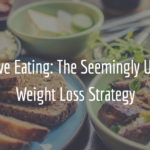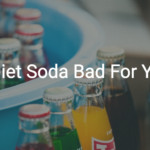Ok everyone, this is the last installment of this series on food and hormones. If you missed part 1 or part 2 you can catch up by clicking the links.
Today, I’m going to cover the final hormone, cortisol. Now these three hormones are by no means the only hormones that play a role in the food you eat and your body composition. However, these are some of the biggest which is why I want you to know more about them.
So without further delay, let’s get started!
CORTISOL
Background
Cortisol is known as your stress hormone, because it is secreted in response to stressful events. It is also secreted when your blood sugar drops to low levels, when you are deprived of sleep, and during bouts of exercise. Its main job is to increase the level of blood sugar and the brain’s use of glucose. This is a naturally recurring response.

Photo Credit: http://www.lamininhealth.com/dc/reduces-stress-hormone-cortisol.html#sthash.Lf0QWULv.dpbs
In a stressful situation, the brain is only thinking about surviving. Because of this, cortisol also suppresses the immune system, digestive system, and reproductive system. The brain is not worried about these systems at the moment since they are not crucial to survival.
All of this may make it seem that we would be better off without cortisol. However, this hormone is needed to get us through a stressful event. Once the event is over, you should begin to relax and cortisol should drop. As I have mentioned in the other two articles, things go wrong once secretion is out of control.
What happens when secretion is not normal?
You may be wondering what this hormone has to do with food. Well, when you miss meals or restrict your calories to very low levels, your body perceives this as a threat. It thinks that food is becoming scarce, so it needs to do whatever it can to prepare for the impending food shortage.
One of the ways it does this is by holding on to your body fat. Body fat supplies more long-term energy needed for survival versus sugar. Cortisol allows the body to break down sugars first to use for energy while it keeps a tight hold on your fat.
Because of the constant break down of sugars, the blood stream is flooded with glucose. As you saw in part 1 of this series, you can become resistant to insulin once this happens. Not only that but chronically elevated cortisol levels will break down muscle tissue to continue to supply energy.
The less muscle mass you have, the lower your metabolism and the higher your body fat. To make matters worse, research shows that increased cortisol levels lead to stress eating, which means you will probably want to eat to make yourself feel better. This leads to overeating and fat gain.
How to normalize it?
Is all this talk making you feel stressed? I hope not! Cortisol is a natural part of your life. Chronic stress and poor nutrition are what makes this hormone such a problem.
The good news is that there is always something you can do about it. The first thing is to improve your nutrition. That is one of the major themes of this series.
Restricting calories or eating a lot of processed foods will do nothing but increase cortisol. Look to consume enough nutrient dense foods that fill you up throughout the day. Lean protein, good fats, and vegetables are the way to go here.
It will also help you to exercise. Although you will secrete some cortisol during exercise, it has been shown to relieve stress. This can help to decrease your levels.
It may be hard to find time to do this, but shoot for small blocks of time at first. It could be 10 minutes a couple of times a week. Once you become comfortable with this, then increase it.
A final thing you can do is find another outlet to relieve your stress. It is very easy to eat when we become stressed, but that will only lead to more weight gain. It could be anything that you would like: exercise, pray, or listen to calming music. Do whatever you need in order to keep you from eating things you shouldn’t be.
Summary
Here are the important things we discussed today.
1) Cortisol is released in response to stressful events.
2) Restrictive diets, missing meals, and processed foods can increase cortisol secretion.
3) Increased secretion can lead to more storing of fat than it needs and insulin resistance.
4) Improving your nutrition, exercising, or finding a hobby to relieve stress are great ways to normalize cortisol.
That concludes this series! I hope you were able to learn some valuable information and see how food and nutritional habits truly have a large impact on the body you want. Take these tips that I have given you and use them. They will help you rid unwanted body fat and get that awesome body you deserve.
If you are looking for a personal trainer in Savannah, contact me to set up a consultation.
And if you found any of this information helpful, or know of someone it could help please share with others!
References:
1) Hartwing, D., Hartwing, M. (2012). It starts with food. Las Vegas: Victory Belt Publishing.
2) http://stress.about.com/od/stresshealth/a/cortisol.htm







6 Comments
03alwi
May 16, 2014Nice trilogy. Keep sharing.
jarredsenglish
May 16, 2014Thank you for your kind words!
03alwi
May 16, 2014Nice trilogy. Keep sharing.
jarredsenglish
May 16, 2014Thank you for your kind words!
[…] Cortisol is an important hormone, but it shouldn’t be chronically elevated. That is when bad things can happen. […]
[…] Cortisol is an important hormone, but it shouldn’t be chronically elevated. That is when bad things can happen. […]